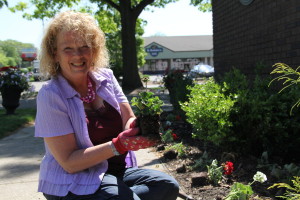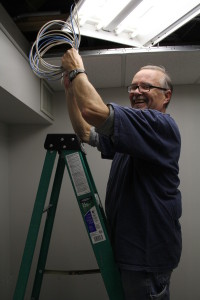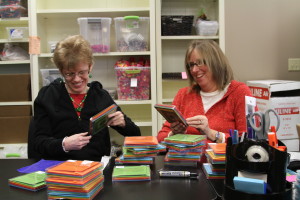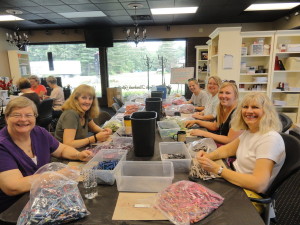A Look into the Psyche of Traffickers
In September 2005, a new crime show was aired on TV. Rather than focusing on the “whodunit” alone, the program delved into the minds of society’s worst, striving to understand why they would commit heinous murders or serial rapes. These insights helped law enforcement snare the bad guys. Quite fittingly, the show was dubbed Criminal Minds, and ten years later, it’s still going strong. You could argue that its success stems from compelling plotlines and loveable characters, but there may be another element to it: criminal psychology piques our curiosity. We shake our heads when we watch the news and wonder how a person could bomb a building or sexually assault a child. Criminal Minds answers those questions.
When we talk about human trafficking, we often focus on the victims, and rightfully so. They have suffered unimaginable trials and need our love, sympathy, and attention. But understanding the characteristics and minds of traffickers is important, too. Not only is it intriguing, but, as is the case in Criminal Minds, it can also help us fight their brand of organized crime.
We can begin our study by looking at the basics. Traffickers are typically adult males, but a shocking amount of participants are female. In fact, courts see more women for human trafficking than for most other crimes (convicts are 10 – 15 percent female in most crimes and 28 percent female in human trafficking [UN Trafficking in Persons Report, 2014]). In addition to being actual traffickers, these women may work as recruiters—an effective tactic because society’s dangers are usually framed as being male, whereas women are typically viewed as trustworthy. Women in the industry may be current or former victims (as is the case with Sweetie’s Madame), but they can also act on their own accord. The most disturbing type of trafficker, however, is the one that’s close to home: a mother, father, brother, sister, or significant other. Families often become traffickers during times of financial strain, when people will do whatever it takes to pay the bills—even if it means sacrificing a loved one’s health, safety, and overall wellbeing for the sake of survival.
Men who sell their girlfriends, however, may have developed the relationship as a means to an end. That’s a common strategy of traffickers: deception. Sometimes they will pursue girls or women, showering them with love, acceptance, and gifts. Their attention-starved victims—typically runaways and those sexually abused—bask in the romantic warmth. Other times, traffickers will offer work opportunities to the impoverished, lying about the job’s tasks and features. Whatever the case, traffickers “exploit the vulnerabilities of the victims,” as the Polaris Project says. By the time victims realize what’s going on, it’s too late; threats, abuse, and manipulation bind their wrists together, imprisoning them with emotional, mental, and physical chains.
The reason traffickers exploit fellow human beings? Greed. The crime teems with money, raking in $32 billion every year (UNODC, 2005). People—unlike drugs—are a commodity that can be used again and again, which stuffs pimps’ wallets with serious profits. As an anonymous federal prosecutor stated, “One of the pimps said he got out of drugs and into prostitution because you could make more money and wouldn’t get as much time in jail” (Busch-Armendariz, Nsonwu, and Cook Heffron, 2009).
Most of us can’t comprehend how a human being could exploit and abuse another for the sake of cash. The thought disgusts and baffles us. And it’d probably do the same to traffickers, if it weren’t for their twisted attitudes and worldviews. These individuals shrug the blame off their shoulders with self-serving logic. They may claim to be helping their victims, saying that they “rescued” them from poverty and the streets. They may dehumanize their workers; one trafficker in the Czech Republic stated that his girls were “’more like things that [he] own[s]’ than employees (qtd. in Copley, 2014). They may place the blame onto those who condemn their actions; a Chicago pimp stated in an interview, “I see no one trying to stop this lifestyle, so why condemn the people who survive doing this? Don’t knock a woman who is struggling” (qtd. in Copley, 2014). Through all these methods and more, traffickers are able to justify their heinous actions and live with themselves.
There are ways you can end their crimes. First of all, learn to identify traffickers, and be on the lookout for them. Watch out for sketchy job postings on Craig’s List. Pay attention to the people you come across, as well. According to Airline Ambassadors International, traffickers may speak for their victims and pretend to be their relatives, among other things. Of course, a controlling person may not always be a trafficker, which is why you should also be able to identify victims. If the evidence you find lines up, don’t hesitate to call law enforcement or the human trafficking hotline (1-888-373-7888). You can learn more about perpetrator/victim identification through WAR International’s Civilian First Responder events.
While their logic is warped, pimps are partially right in saying that society allows trafficking to flourish. But this doesn’t have to be the case, and change can start with you. Stem the demand for commercialized sex. Refuse to look at porn and seek help for addictions. Don’t support companies that use sex to sell their products or services (e.g. Carl’s Jr., Hooters, Abercrombie and Fitch, etc.). Boycott films and music that objectify women. When you do these things, you create a cultural shift within the United States, changing our country from one of exploitation and slavery to one of mutual respect and freedom.






